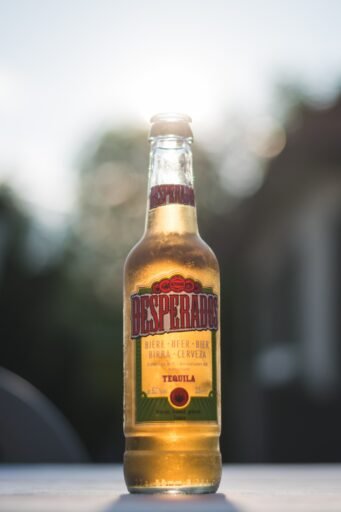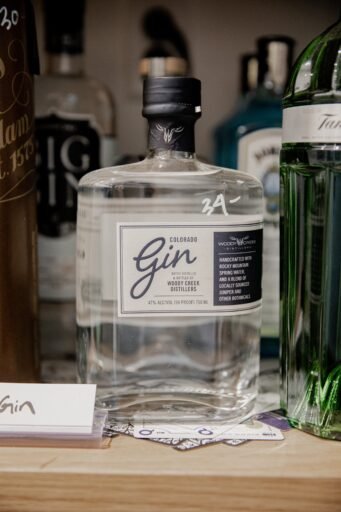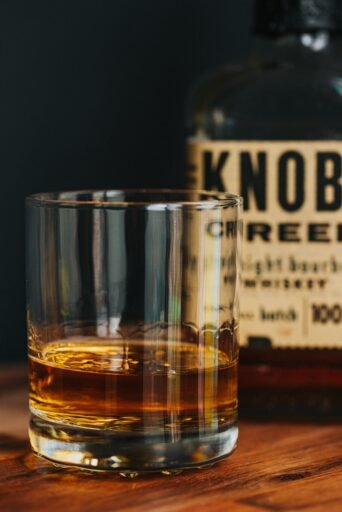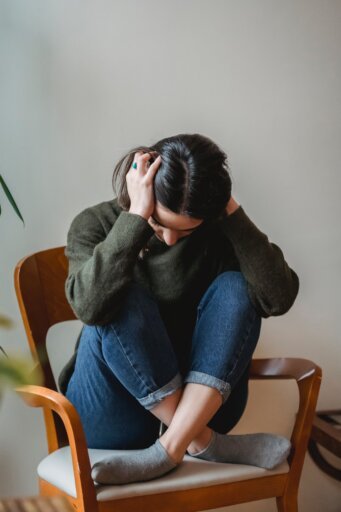Imagine a scenario where you’re at a social gathering, surrounded by laughter and clinking glasses. As the night progresses, you decide to indulge in a few alcoholic beverages, hoping to ease your social anxiety. But unexpectedly, waves of fear and dread start crashing over you, leaving you gasping for air. In this thought-provoking article “Does Alcohol Cause Panic Attacks”, we explore the profound connection between alcohol and panic attacks, unraveling whether alcohol truly instigates these unsettling episodes or if there is more to the story than meets the eye. Let us explore the intricate relationship that exists between alcohol consumption and panic attacks, shedding light on a topic that affects countless individuals worldwide.
What are Panic Attacks?
Panic attacks are discrete episodes of intense fear or discomfort that typically reach their peak within minutes. They are characterized by a rapid heartbeat, sweating, trembling, shortness of breath, a sense of impending doom, and often a desire to escape the situation. Panic attacks can be extremely distressing and can interfere with daily life.
Definition
Panic attacks are a symptom of panic disorder, which is a type of anxiety disorder. According to the Diagnostic and Statistical Manual of Mental Disorders (DSM-5), panic attacks are defined as a sudden surge of intense fear or discomfort that peaks within minutes and typically involves a combination of physical and cognitive symptoms.
Symptoms
The symptoms of a panic attack can vary from person to person but commonly include:
- Rapid heart rate or palpitations
- Sweating
- Trembling or shaking
- Shortness of breath or a choking sensation
- Chest pain or discomfort
- Nausea or abdominal distress
- Dizziness or lightheadedness
- Feeling detached from oneself or the surrounding environment
- Fear of losing control or going crazy
- Fear of dying
Alcohol and Panic Attacks
While alcohol is commonly used as a way to relax or cope with stress, it can have significant effects on mental health, including anxiety disorders and panic attacks.
Overview
Alcohol is a central nervous system depressant that can initially provide a sense of relaxation and euphoria. However, its effects are not limited to the immediate intoxication. Regular or excessive alcohol consumption can lead to significant changes in brain chemistry and functioning, ultimately affecting mental health.
Link between Alcohol and Anxiety Disorders
Numerous studies have found a strong correlation between alcohol use and anxiety disorders, including panic disorder. While alcohol may initially relieve symptoms of anxiety, it can ultimately worsen anxiety over time. This relationship may be attributed to the impact of alcohol on neurotransmitters and hormonal balance in the brain.
Alcohol Withdrawal and Panic Attacks
If someone who regularly consumes alcohol abruptly stops or reduces their alcohol intake, they may experience alcohol withdrawal symptoms, including panic attacks. Withdrawal from alcohol can cause a variety of physical and psychological symptoms, including anxiety, restlessness, irritability, and, in severe cases, panic attacks.

Biological Factors
Alcohol can influence biological factors that contribute to the development and exacerbation of panic attacks.
Effects of Alcohol on Neurotransmitters
Alcohol affects neurotransmitters, chemical messengers in the brain that regulate mood and behavior. Chronic alcohol consumption can disrupt the delicate balance of neurotransmitters, including serotonin and gamma-aminobutyric acid (GABA). These imbalances can contribute to increased anxiety and panic attacks.
Alcohol-induced Hormonal Imbalance
Alcohol consumption can also disrupt the hormonal balance in the body, specifically the stress hormone cortisol. Excessive alcohol intake can lead to increased cortisol levels, which are associated with anxiety and panic attacks. Additionally, alcohol can interfere with the body’s ability to regulate stress responses, further exacerbating anxiety symptoms.
Psychological Factors
Alcohol use can have a significant impact on psychological factors that contribute to panic attacks.
Alcohol as a Coping Mechanism
Many individuals with anxiety disorders, including panic disorder, turn to alcohol as a way to cope with their symptoms. Alcohol can temporarily numb emotional distress and provide a sense of relief. However, this reliance on alcohol as a coping mechanism can perpetuate the cycle of anxiety and panic, ultimately worsening the symptoms in the long run.
Increased Vulnerability to Anxiety
Individuals who are already prone to anxiety may be more susceptible to experiencing panic attacks after consuming alcohol. Alcohol can lower inhibitions, impair judgment, and increase impulsivity, which can lead to heightened anxiety and panic in susceptible individuals.

Genetic Predisposition
Genetics play a role in both anxiety disorders and alcohol use disorder, and there is evidence of a genetic link between the two.
Family History of Anxiety Disorders
Having a family history of anxiety disorders increases the risk of developing panic attacks. Genetic factors can influence the regulation of neurotransmitters and stress responses, making individuals more vulnerable to anxiety disorders.
Genetics and Alcohol Sensitivity
Certain genetic variations affect the metabolism of alcohol and the way it is processed in the body. Some individuals may be more sensitive to the effects of alcohol, experiencing increased anxiety and panic attacks with even small amounts of alcohol.
Alcohol as Trigger or Catalyst
Alcohol can directly trigger or exacerbate panic attacks due to its immediate effects on the body and mood regulation.
Immediate Effects of Alcohol on Anxiety
While some individuals may initially experience a sense of relaxation and decreased anxiety when consuming alcohol, this effect can quickly change. Alcohol can disrupt sleep patterns, further increase anxiety, and lead to rebound anxiety the next day. Additionally, the effects of alcohol can intensify as blood alcohol levels decrease, leading to heightened anxiety and panic attacks.
Negative Impact on Mood Regulation
Alcohol is known to depress the central nervous system and can negatively impact mood regulation. It can contribute to feelings of depression, irritability, and heightened anxiety, all of which can act as triggers for panic attacks.

Combination with Other Substances
Combining alcohol with other substances can significantly increase the risk of panic attacks and other adverse effects.
Synergistic Effects with Stimulants
Mixing alcohol with stimulants, such as caffeine or illicit drugs like cocaine, can have synergistic effects on the body. These combinations can increase heart rate, blood pressure, and anxiety levels, potentially triggering panic attacks.
Interactions with Medications
Alcohol can interact negatively with various medications, including those prescribed for anxiety or panic disorders. Mixing alcohol with certain medications can lead to increased sedation, dizziness, and impaired cognitive function, further exacerbating anxiety symptoms and increasing the risk of panic attacks.
Frequency and Amount
The frequency and amount of alcohol consumed can impact the likelihood of experiencing panic attacks.
Moderate Consumption vs Heavy Drinking
Moderate alcohol consumption, defined as up to one drink per day for women and up to two drinks per day for men, does not generally increase the risk of panic attacks significantly. However, heavy or excessive drinking, defined as consuming more than the recommended limits, can have a substantial impact on mental health and increase the likelihood of panic attacks.
Binge Drinking and Panic Attacks
Binge drinking, characterized by consuming a large amount of alcohol in a short period, significantly increases the risk of panic attacks. The rapid increase in blood alcohol levels followed by a rapid decrease can induce anxiety, heart palpitations, and other symptoms associated with panic attacks.
Individual Differences
Individual differences, such as tolerance and preexisting mental health conditions, can influence the relationship between alcohol and panic attacks.
Tolerance and Sensitivity
Individuals who have developed tolerance to alcohol may require larger amounts to experience the same effects. However, increased tolerance does not protect against the negative effects of alcohol on mental health. Conversely, individuals with lower tolerance may be more sensitive to the anxiety-inducing effects of alcohol.
Preexisting Mental Health Conditions
Individuals with preexisting mental health conditions, such as anxiety disorders or a history of panic attacks, are more vulnerable to experiencing panic attacks with alcohol consumption. The interaction between alcohol and these preexisting conditions can heighten anxiety and increase the chance of panic attacks.
Alcohol-Induced Anxiety Disorder
Prolonged or heavy alcohol use can lead to the development of alcohol-induced anxiety disorder.
Diagnostic Criteria
According to the DSM-5, alcohol-induced anxiety disorder is characterized by the presence of anxiety, panic attacks, or phobias that develop during or soon after alcohol intoxication or withdrawal. The symptoms must be severe enough to significantly affect daily functioning and cannot be better explained by another mental disorder.
Prevention and Treatment
Preventing alcohol-induced anxiety disorder involves reducing or eliminating alcohol consumption, particularly if panic attacks or anxiety symptoms are present. Treatment for alcohol-induced anxiety disorder typically involves a combination of therapy, medication, and support groups to address both the underlying anxiety and alcohol use.
In conclusion Does Alcohol Cause Panic Attacks
While alcohol may provide temporary relief from anxiety, it can ultimately worsen symptoms and increase the risk of panic attacks. Understanding the relationship between alcohol and panic attacks is crucial for individuals experiencing anxiety or panic disorder and can help inform prevention strategies and treatment approaches. It is essential to seek professional help if you or someone you know is struggling with alcohol consumption and experiencing panic attacks. Remember, you are not alone, and help is available.
Frequently Asked Questions:
Q1: Why does alcohol make me have panic attacks?
“Alcohol can disrupt the balance of neurotransmitters in the brain, triggering panic attacks. It affects the nervous system, leading to heightened anxiety responses.”
Q2: How do you calm down a panic attack?
“In the midst of a panic attack, practice deep breathing, grounding techniques, and positive affirmations. Seeking support from loved ones or professionals can also provide effective coping strategies.”
Q3: How do you break a panic cycle?
“Breaking a panic cycle involves identifying triggers, challenging negative thoughts, and gradually exposing yourself to feared situations. Professional guidance is valuable in developing a tailored plan.”
Q4: Why am I having daily panic attacks?
“Daily panic attacks can stem from various factors, including stress, trauma, or an underlying anxiety disorder. Consulting with a mental health professional is crucial for personalized insights and support.”
Q5: Does quitting alcohol reduce anxiety?
“Yes, quitting alcohol often leads to a reduction in anxiety. Alcohol withdrawal symptoms and its impact on neurotransmitters can contribute to heightened anxiety levels.”
Q6: Does alcohol worsen anxiety?
“Indeed, alcohol can exacerbate anxiety symptoms. While it might provide temporary relief, its depressant effects can contribute to increased anxiety over time.”
Q7: What is the 3 3 3 rule for panic attacks?
“The 3 3 3 rule involves practicing deep breaths, acknowledging three things you see, three things you hear, and moving three parts of your body during a panic attack. It aids in grounding and refocusing.”
Q8: What stops panic attacks fast?
“Grounding techniques, controlled breathing, and positive self-talk are effective in stopping panic attacks quickly. Learning and practicing these methods can be empowering.”
Q9: Does drinking water stop panic attacks?
“While staying hydrated is essential for overall well-being, drinking water alone may not stop panic attacks. Combining it with mindfulness techniques can be more beneficial.”
